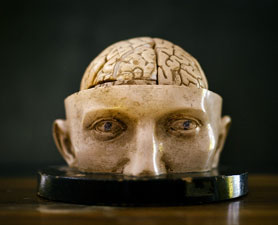The sources of human uniqueness

I am currently taking a short break from blogging to concentrate on teaching and on organising the Wiring the Brain conference, which will be held in April. Should be back in the saddle in a few weeks time. In the meantime, here's one of my original posts from a couple years ago.
It argues that intrinsic variation in how the program of brain development runs is a major source of individual differences in all manner of behavioural traits. In short, if you cloned yourself a hundred times you would end up with a hundred quite individual brains, each wired in its own way. Of course they would be more similar to each other than to some random person, because genetic effects are very important, but they would also be more innately unique than might be expected from the results of behavioural genetic experiments. Read the full post here: Nature, nurture and noise



hmm. That assumes that behavior equals individuality. Bit of a stretch since our daily chores are handled by a largely autonomous limbic system which only gets interpreted at a higher level after the fact.
ReplyDeleteGiven that our primary social interaction responses are beyond our direct control i fail to see how the one indicates something about the other.
If my limbic system interprets sensory clues and after gives me a 'good' feeling or a 'bad' feeling its not ME who reacts. I am just the messenger.
As such uniqueness is in the eye of the beholder. To us the subtle behavioral differences may mean something, on the whole they are just different interpretations of the same basic data.